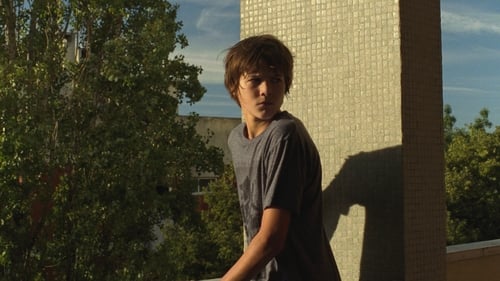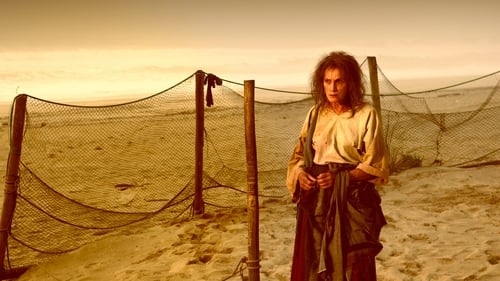
Cinematography
The failed coup of 1961 that tried to overthrew the Fascist Regime in Portugal.

Editor
The failed coup of 1961 that tried to overthrew the Fascist Regime in Portugal.

Director
The failed coup of 1961 that tried to overthrew the Fascist Regime in Portugal.

Editor
Denying his duty and in order to escape a crucial process of becoming a shaman, Ihjãc runs away to the city. Far from his people and culture, he faces the reality of being an indigenous in contemporary Brazil.

Editor
Ernania is hospitalized in a psychiatric hospital in Mozambique. She dreams about her little son, Hanic, and her husband, Pak, who is a soldier of the war. In the meantime, a quirky musical instrument plays: her own bed. Ernania’s musical virtuosity, attracts the attention of the hospital nurses. One day, her song is played in a radio program and Rosa, an evangelical priest of “Rádio Moçambique”, goes to the hospital to listen to Ernania’s song. Ernania takes the priest’s visit as an opportunity to run away from the hospital.

Editor
Lucy, regarded as crazy, has a son.

Editor
One night, a group of workers realises that the administration is stealing machines and raw materials from their own factory. As they organize to survey the equipment and block the relocation of production, they are forced to stand at their posts with no work to do, as a form of retaliation, while negotiations over general lay-offs take place. The pressure leads to a breakdown of the workers along with the world around them.

Editor
Karlon, born in Pedreira dos Húngaros (a slum in the outskirts of Lisbon) and a pioneer of Cape Verdean creole rap, runs away from the housing project to which he had been relocated.

Editor
Day breaks on the eighth floor in a suburban neighbourhood of Lisbon and 14-year-old Bruno’s grandfather is still in hospital. Doctors give him only a few days to live. The imminence of death and the void that it will leave force Bruno to become the man of the house, where he lives with his mother Mónica, who is in her 30s, and his three-year-old sister Érica.

Editor
1920s. Vitalino, a small farmer from São Vicente sees his father die of the epidemic which decimated the country. Some years later, of all the brothers, Vitalino is the strongest and takes his father’s place in the house. But the village is too small for his aspirations and he decides to head to Brazil, leaving his sisters in charge of the household. In parallel with Vitalino’s story, If I Were a Thief… I’d Steal portrays the world of Paulo Rocha rummaging through his films and ghosts over the years.

Editor
Fatu’s father has returned home to Guinea-Bissau from Portugal to attend her wedding. The young woman teaches at the university and her future husband is a well-known musician. Their wedding is supposed to take place in Tabatô, a village where everyone makes music. On the way there, it becomes apparent that the father is seriously traumatised by his experiences as a soldier in the colonial war decades earlier.

Editor
Developing from an idea of diptych, the story of Anajara and Allison is told from two perspectives in continuity. If late night work complicates the life of one of them, the incarceration in jail of the other determines a cycle of separation. Salaviza's skill to direct amateur actors is showed in this film, one of his more precise works.

Cinematography
Owners of Portugal is a documentary about one hundred years of economic power.
The film portrays the State protection to families that dominated the country's economy, their strategies for power and wealth accumulation.
Mello, Champalimaud, Espírito Santo - big families intersect by marriage and integrate by finance. Threatened by the end of the dictatorship, their power is restored under democracy, through privatization and promiscuity with politics. New economic groups - Amorim, Sonae, Jerónimo Martins - grow on the same basis.
As the crisis unravels the limits of Portuguese economic development model, this film presents the actors and the main choices that brought us here.

Editor
Owners of Portugal is a documentary about one hundred years of economic power.
The film portrays the State protection to families that dominated the country's economy, their strategies for power and wealth accumulation.
Mello, Champalimaud, Espírito Santo - big families intersect by marriage and integrate by finance. Threatened by the end of the dictatorship, their power is restored under democracy, through privatization and promiscuity with politics. New economic groups - Amorim, Sonae, Jerónimo Martins - grow on the same basis.
As the crisis unravels the limits of Portuguese economic development model, this film presents the actors and the main choices that brought us here.

Director
António Dias Lourenço, a communist, remembers the years of incarceration in the fort of Peniche, during the fascist dictatorship in Portugal, focusing on the episode of his evasion in 1954.

Editor
They are both there. Who belongs where? He thinks she comes from far away in time. She says she has always been there. He gets a job. He sells his house. She only has a blanket. Which one is passing through?

Director
They are both there. Who belongs where? He thinks she comes from far away in time. She says she has always been there. He gets a job. He sells his house. She only has a blanket. Which one is passing through?

Editor
Arriving in a hotel in the city of Faro, a couple learns there are no available tables left. When another couple agrees to share a table, they spark a conversation on the city’s history, unfolding the tales of King Afonso III, who betrays his wife, and of a Moorish woman, who betrays her father.

Editor
In mid-September 1992, journalist Guida Fontes have to go to Luanda to cover the elections in Angola. In the meantime, she had committed herself to discovering and interviewing the poet Júlio Vera. In 1988, he wrote a series of poems in which he mysteriously anticipated the fall of the USSR. Guida has only 12 days to complete the mission.

Director
In mid-September 1992, journalist Guida Fontes have to go to Luanda to cover the elections in Angola. In the meantime, she had committed herself to discovering and interviewing the poet Júlio Vera. In 1988, he wrote a series of poems in which he mysteriously anticipated the fall of the USSR. Guida has only 12 days to complete the mission.

Editor
Vanitas is the new feature film by veteran Portuguese director Paulo Rocha. With a script by Regina Guimarães, the film brings together actresses Isabel Ruth and Joana Bárcia – no strangers to this director's world – in a story about a depressed fashion designer who falls in love with the daughter of one her tailors.

Camera Operator
The night of the summer solstice. Fireworks resound between the two banks of the river like a bombardment. On the water, boats appear and disappear. Lost in the dark, rich and poor dissolve under the coloured firework lights. Is it war? Is it the light of the sky descending upon them? Is it the Apocalypse? Is it a fresh new start or the end of the world has come?

Editor
The night of the summer solstice. Fireworks resound between the two banks of the river like a bombardment. On the water, boats appear and disappear. Lost in the dark, rich and poor dissolve under the coloured firework lights. Is it war? Is it the light of the sky descending upon them? Is it the Apocalypse? Is it a fresh new start or the end of the world has come?

Editor
Set in the Lisbon during the festivities of Saint Anthony, the patron saint of lovers and the old town. The story is about Cato, a nationalist politician who is charismatic and unscrupulous. He obsessively pursues Silvia, a mystical and mysterious young transvestite whom he meets at the festival. When Silvia runs into Vicente, a policeman who arrests transvestites and threatens them, Silvia must look towards blackmail to save herself. Compromising photos of Cato start to emerge among opposition parties and he must do all in his power to save his political career.

Editor
A documentary about a family of goat herders in Portugal and the relationship between man and animals.

Director
A documentary about a family of goat herders in Portugal and the relationship between man and animals.

Editor
Carolina, an aging local grande dame who works at a crossing point on the titular river, marries another late-in-life character, the dredging-boat operator Antonio. Not long after their union, she becomes intensely jealous of Antonio's fondness for their winsome goddaughter, Joana, and insinuates herself into a relationship brewing between Joana and a mystical gypsy gold salesman. Soon, tempers are flaring, mystical secrets are being revealed and death is hovering over the central characters.






















